Bread and butter is one of the simplest meals gifted to mankind (Yes, I consider it a meal). Whether you go to Texas Roadhouse, Red Lobster, O’Charley’s, or even Olive Garden, bread service is the foundation of every menu. My personal favorite came from my grandmother, who would make her southern biscuits every morning when the family came together. They’ve always been perfectly flaky and cooked with a few handfuls of Crisco thrown in. It’s a simple treat, no flair, no fashion, just bread slathered with butter. In my pursuit of finding excellent bread, I recently came by Evergreen Butcher+Baker, where I met Sean and Emma Schacke. A couple that focuses on what could be called “the bread and butter” of everyday food. They had a desire to provide a one-stop shop for high-quality, traditional ingredients that everyone needs in their diet, bread and meat. They stay ever consistent, never following trends, but focused on what’s already been made perfect, just like the evergreen trees, never changing. With Sean’s love for cooking for others and Emma’s inspiration from her own grandmother, they started their shop in the Kirkwood neighborhood of Atlanta to give locals a place where they can always find what they need.
The Place: Evergreen Butcher+Baker
1. What’s the story?
2. Where Do You Source From?
3. What are Unpretentious Ingredients?
4. Importance of Sourdough
5. What Makes Y’all Unique?
6. The Viral Burger
What’s the story of Evergreen?
Emma- Well, having a bakery is all I've ever wanted to do. Right out of high school, I went to the French pastry school and began working different jobs and learning as much as I could with the goal of owning a bakery. I then met Sean, who had been a chef for about seven years at that point.
We met in Atlanta but moved to Nashville, then Chicago, then Maine, and then back to Atlanta again. When we moved to Chicago, he switched over to become a full-time butcher. That's sort of the beginning of when our idea to open something together came about.
Sean always wanted to have his own sandwich business. So our pairing really ended up creating itself. It was while we were in Maine that we began looking at property back in Atlanta. We knew we wanted to be here because both of our families are here. Sean is from Athens, and my family is in Atlanta. So we knew that if we wanted to open a business, it would mean a lot more to have our family around for it. So that's why we ended up coming back to Atlanta.
The name Evergreen is because we're very anti-food trends. We’re kind of just traditionalists in our thinking, and the things that we're doing here have been around for millennia. For us, there’s no reason to reinvent anything. We're just trying to make the staples as best as we can and be as steady with them as we can. It's also a little bit of a nod to our time living in Maine, which is the “Pine Tree State.”
How do you source?
Sean- Thankfully, we had some contacts from when we were here, years prior. We always knew that we wanted it to be as local as possible when sourcing, especially when it came to meat. It was a little tougher finding flour, because with where we are, flour doesn't grow as well as, say, North Carolina.
Emma- The first farm we visited was Dayspring, where we already knew that we were gonna be sourcing our flour from. Then there are only two other local mills, Carolina Ground and Lindley Mills, so that's where we go to source the rest of our flour. At that point, our flour sourcing was done because I didn't wanna get anything outside of the region.
Sean- Meat was more difficult, especially since we're doing everything with whole animals. We were getting sides of beef, which was something that many of the distributors in town had never really attempted to do, so logistics was the hardest part. Like getting half a cow in on a pallet. We had a guy named John Dingfelder, who helped us with a lot of that. He actually helped us figure it all out, like getting a truck down here and to us once a week.
Emma- Luckily, we found Chattel Farms, which is still a small local farm, but they have enough of a herd that they can give us a half a cow a week. For pigs, any farmer in Georgia, we source from. So right now, we get Comfort, Grassroots, and Rogers Green’s and Roots Farm.
Sean- Once we got going, farmers have been reaching out to us now. So, it's become a little easier, where folks reach out like, “Oh, we see you do lamb.” We just had a new lamb farmer come through a couple of weeks ago.
Emma- We’re happy to work with any small farm that reaches out to work with us because we always need people to source from.
Your website mentions “unpretentiousness” ingredients. What does that mean?
Emma- We want the product not to be intimidating to people. Everyone should be able to have a loaf of bread in their house for the week. It doesn't have to be a special thing. It should be a staple, and we want to be a staple in someone's house. We want to make our space accessible in a way where people begin to build a familiarity with going to their neighborhood shop and just stocking up for their week. In the same way, it is in European culture. I think the best part about how we ended up in Kirkwood is that it does feel like we're just a little neighborhood shop to us.
Sean- I think it also goes back to how it should be traditional for people. We don't want to be a destination spot. We want to be somewhere you can shop every day if you want to or if you need to. We want to be a part of your daily life.
Why is sourdough important?
Emma- For me personally, I enjoy the challenge of it. Even if I bake the same loaf of bread every single day, the formula is different. It’s based on the weather, the fermentation of my starter, the crop of flour I got from the farmer, etc. I love the challenge of it, but in all actuality, it's because it's just a better way to bake.
The loaves are extremely nutritious and more easily digestible. There are all kinds of health benefits, too, which is a huge reason to do it, but it also helps with the longevity of the bread. So really, it’s about flavor, nutrition, and how much I just enjoy the practice of it.
Sourdough itself has been around since ancient Egypt. Keeping the practice and the tradition alive by passing down the knowledge is important. I want to keep our art and craft alive by teaching as many people as I can and sticking to the proper way to make it.
What’s something unique about your shop?
Sean- I think one of the main things, and this kind of goes back to how I always thought I'd love to have a sandwich shop, is that we make all of our own deli meats in-house. So, you can come in, get a loaf of bread, slice it, and add a couple of different deli meats to then make your lunches for the rest of the week.
Emma- We don't just offer pre-made sandwiches like a lot of spots. You can actually buy whatever you want and make any kind of sandwich you want. We make all of our own pickles and everything else in-house, too. The same goes for the bread; we offer so many different types, so you can pick any kind of bread you want, have it sliced, and mix and match it with our deli meats.
Tell me about “The Burger” that went viral.
Emma- It originally began as a way for us to drum up business on Sunday. We like to run a no-waste program here and took it as a way to use up all of our beef and really just add something kind of fun to the menu. We had already been making a lunch special every day of the week, so Sundays seemed like the perfect day to do it.
Sean- We just started making 50 without any real advertising or anything. The neighborhood really started to show up. It began to gain some steam, and we ended up bumping up the numbers as it got busier.
Emma- We’re at 175 burgers now. We actually have a cheeseburger flag that we hang up, which signifies when we have cheeseburgers available. It’s hung up exactly at 1 o'clock every Sunday, but people usually start lining up at about 12:30. They’re usually all gone within the hour. We don’t always sell out, though, so if you happen to be driving by and you see the cheeseburger flag with no line, then it's your time. Come get a cheeseburger.
The People: Emma and Sean
1. What’s Y’all’s Story?
2. Why Study French Pastries?
3. Why Butchery?
4. Favorite Thing to Bake?
5. Favorite Cut of Meat?
(Photo by Andrew Lee)
Who are Emma and Sean?
Emma- So, I always knew I wanted to be a baker since before I even baked anything. No one in my family ever really baked, but my grandmother made this one apple cake, which is on our menu every day. Growing up, I watched Ina Garten every day of high school and baked whatever she made. I ended up going to pastry school in Chicago, at the French Pastry School, and then I began to learn every facet of baking. I've worked as a chocolate maker, pastry chef, bread baker, bagel maker, croissants, I just wanted to learn every part of it as best as I could.
So, I ended up moving to Amsterdam to work as a baker for a year there, and when I moved back, I moved to Atlanta and started at the One Eared Stag as the executive pastry chef. Sean was the sous chef there at the time. That's how we met, and we started dating maybe like a week into my time there.
Sean- I'm from Athens originally. I actually got started a little later in my career. I was just kind of lost for a minute. I didn't know what I wanted to do in school, but I'd always cook. I was always grilling for friends, so the logical choice for me was to go to culinary school. So I went to culinary school, and after my first quarter, I got a job in the kitchen at an actual restaurant. I felt like I was learning more at that job than in school, so I left school and quickly worked my way up through kitchens, and did that for quite a while. After Emma and I met at the Stag, we moved to Nashville, then Chicago, but still working in kitchens. It was in Chicago that I made the decision to specialize as a butcher. It had all the aspects of the chef jobs that I liked doing. After that, I just kind of stuck with it everywhere we went since.
Why did you choose to study French Pastry?
Emma- This makes me seem like such a square [Laughs], but it’s really just the tradition of it. They are very strict about the definition of things. Because if something's called (blank), then it should in fact be that thing. You can’t just substitute butter in a croissant, and it still be a croissant. If you're not using butter, then it's not a croissant.
The French even have laws about these sorts of things, which I appreciate so much. For example, in France, you can't call something sourdough if you use a certain percentage of instant yeast in your bread there. I really appreciate that they have kept the tradition alive and take it as seriously as they do.
My degree was in French patisserie, in particular, which was really tedious and meticulous. It didn't end up being my favorite thing to do professionally, as you can tell by the products we sell at Evergreen. Evergreen is more of a boulangerie than a patisserie. I may be a little more drawn to bread, but I still approach it in the same way.
Why specialize in butchery?
Sean- Originally, I just thought it was an avenue where I could learn something new and maybe get away from cooking every single night. But as I started going, I began realizing that it's not just cutting up pieces of pork. We were making things out of every piece, cutting it from the whole. We’d make bacon and ham and all kinds of stuff, which gave me that same creative outlet as cooking. I just kept going with it and didn't really miss being in the kitchen anymore at all.
I think a lot of people think of butchery as being as simple as only portioning steaks, but there's actually so much more to it. It's not so rigid either, I’d say. You can cut the cow differently week to week. That's really the best part, is how we can cut it anyway because it comes whole to us, which means we're not restricted. I think I’ve always approached everything this way. Asking, “How much can I learn from it to make myself better at what I’m doing?” There's always new stuff to learn with it, which is why I enjoy it, and I think stuck with me.
What is your favorite specialty to bake?
Emma- Probably croissants. I mean, first of all, it's really difficult to make a good croissant. It also changes day to day the way that bread does because it's a fermented product. So it's not like you can make it the same every single day. I have to change my formula seasonally. It's all about temperature control, and there are just so many facets that could go wrong at any point, you know? So, I think it's part of the reason why I enjoy it as something to make because it's such a challenge. I don't think it's any fun to just make something that's easy, nonstop.
What’s your favorite cut to introduce to people?
Sean- I have to say, the Bavette has been kind of our go-to. It's a cut of beef that comes from the flank and connects the sirloin to the strip. The grain structure is very much like skirt steak, and it’s shaped like a bib. It's great for grilling, tacos, or that kind of thing. But it's like a cut that you don't necessarily see at the grocery store. Super flavorful and really tender. So that's one that I always recommend to people if they want to try something new. There's only one on each half of the cow. So it's something that moves pretty quickly. For the people who now know of it, it'll usually be gone by the end of the day. It was a difficult sell at first, but people realized with our philosophy on things, such as how each cow we get only has one hanger steak. If you can walk into a place and see a bowl full of ten hanger steaks, that represents ten different cows. So, the Bavette has become a very popular cut. People love it. We're only going to have that single one each week.
Recommendations:
1. Tips for Home Baking
2. Meatball Recipe
How to start baking at home?
Emma- First and foremost, get a kitchen scale. Cup measurements are super imprecise because every flour you use will weigh differently. A cup of whole wheat flour can weigh differently than a cup of all-purpose flour, or even different brands of the same type can vary. So, definitely get a kitchen scale because precision matters.
If you’re dealing with sourdough specifically, I think starter health is the most important starting point. We give away sourdough starter at the shop, so if anyone ever wanted to begin with a healthy starter, we can provide that.
Ultimately, though, don’t get discouraged because I think people may think that if they fail once, then they're going to give up. But it takes so much practice and repetition to create a good product. So, if you make something good the first time, the more you make it, the better it's gonna get. So, I think persistence and practice are the two most important things you can do when you're getting into baking.
What’s a recipe people can make from your store?Meatballs:
Ingredients-
1lb ground pork
1lb ground beef
1 cup old sourdough, cut into cubes
1 cup milk
1 egg
2Tbs salt
2 cloves fresh garlic, finely chopped
1Tbs paprika
1 bunch of chopped parsley
Directions-
1. Soak sourdough cubes in the milk until hydrated, 15 minutes.
2. Mix all ingredients by hand thoroughly.
3. Portion into 2-oz balls.
4a. Sear meatballs in a pan, then finish in a 350°F oven for 15 minutes.
4b. Alternatively, after searing, finish off by simmering in your pot of sauce for 15- 20 minutes.
Happy Rising!
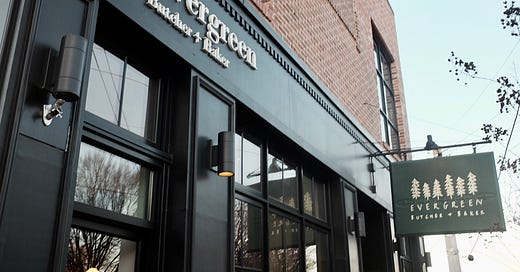



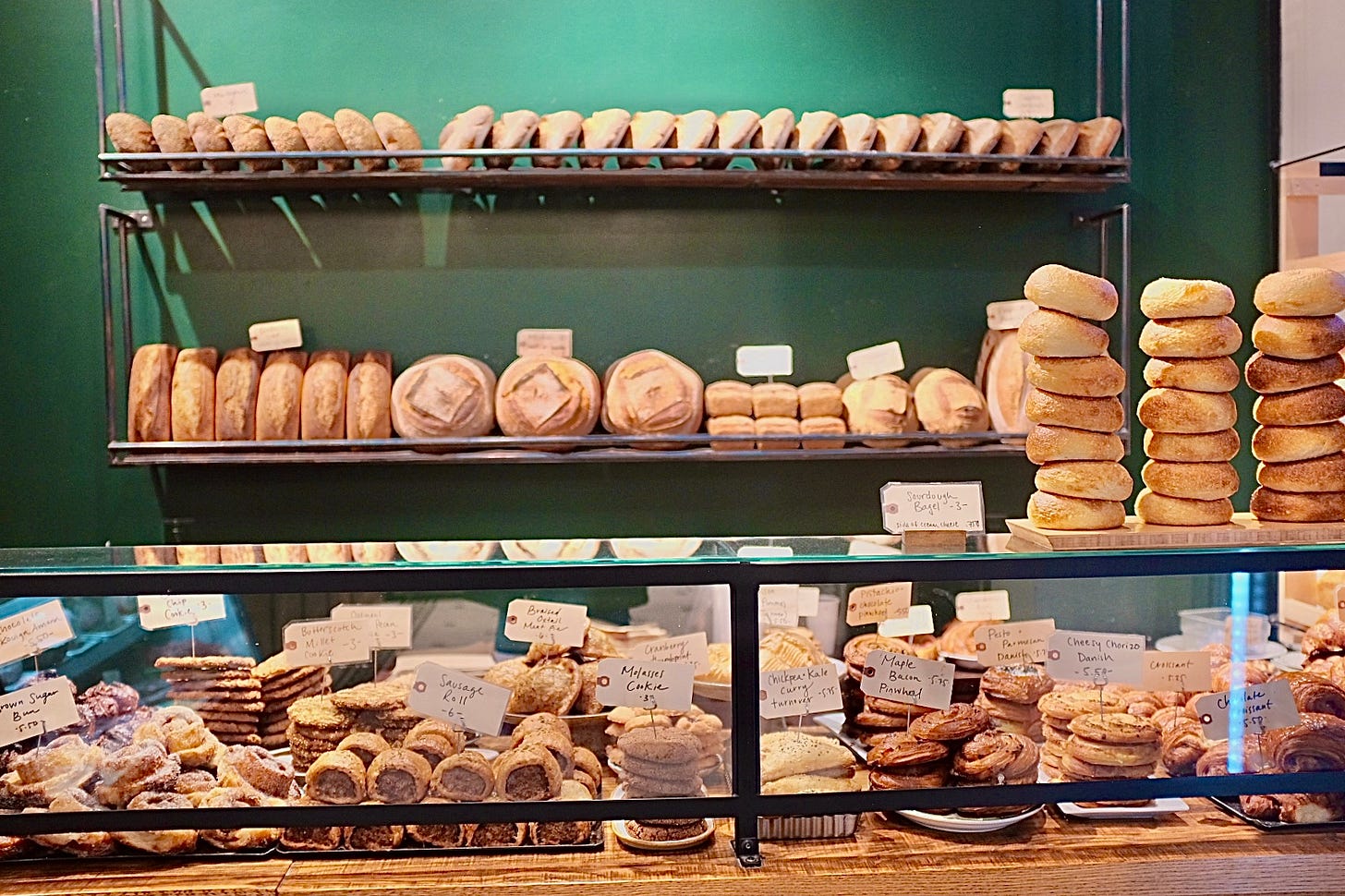
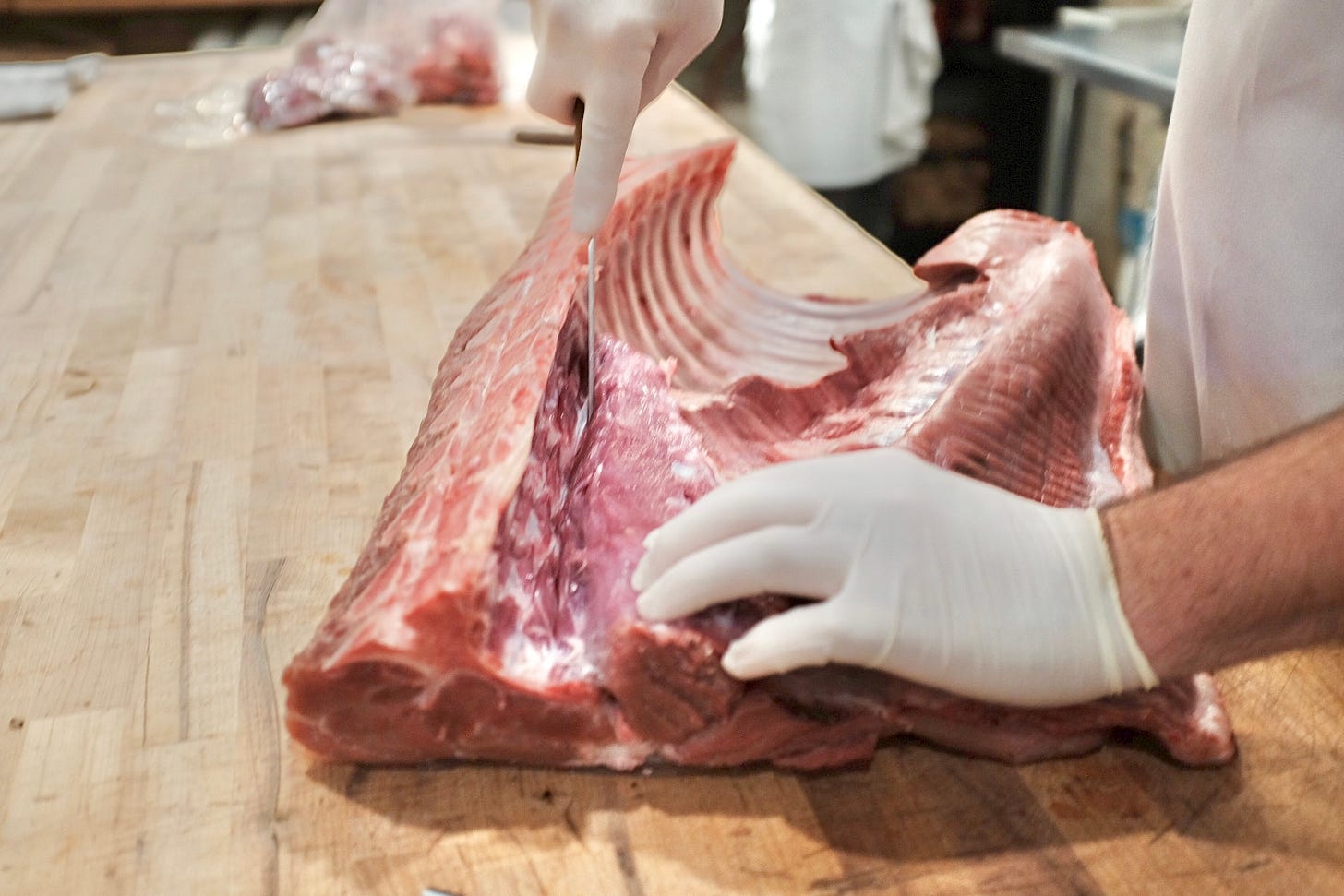
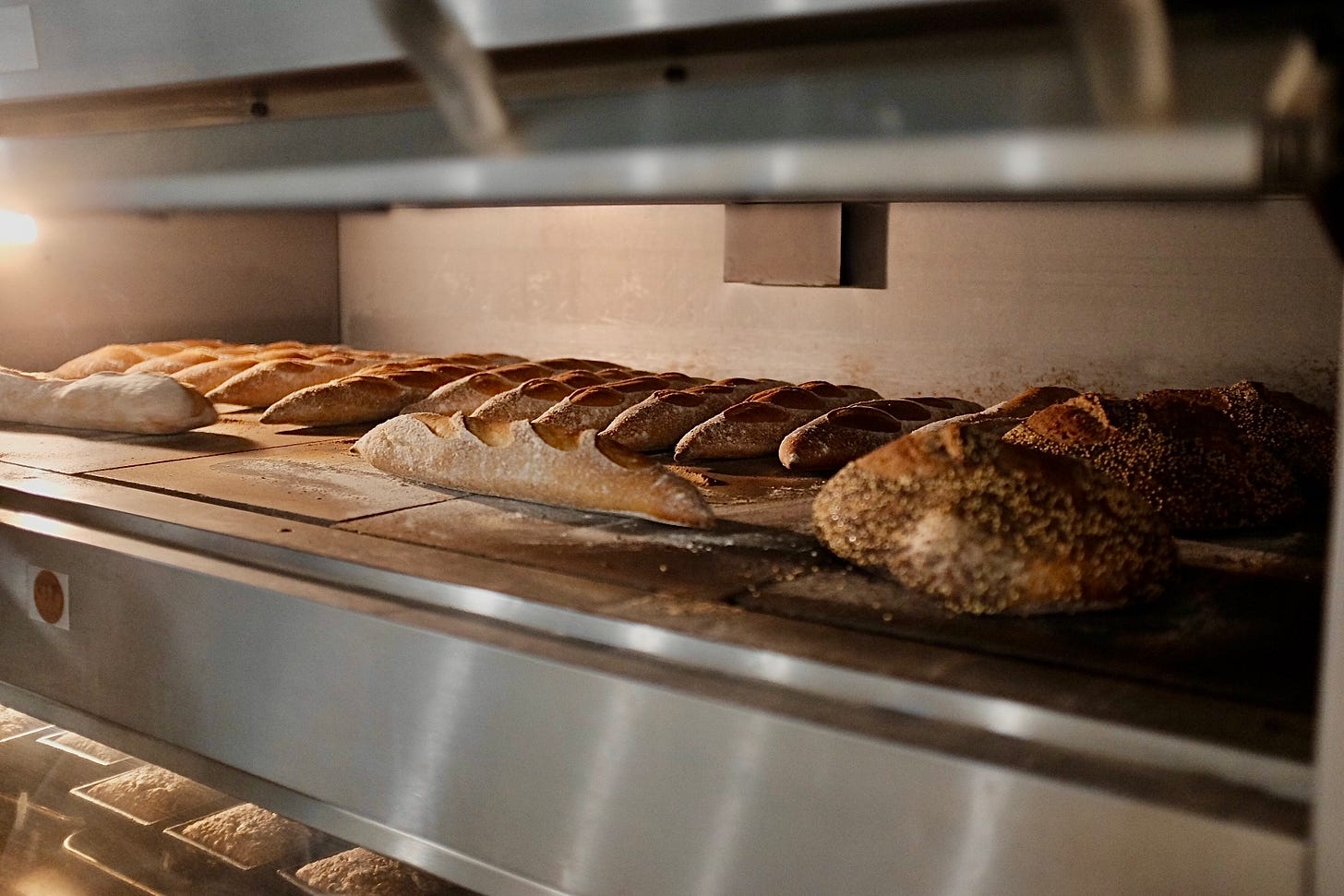
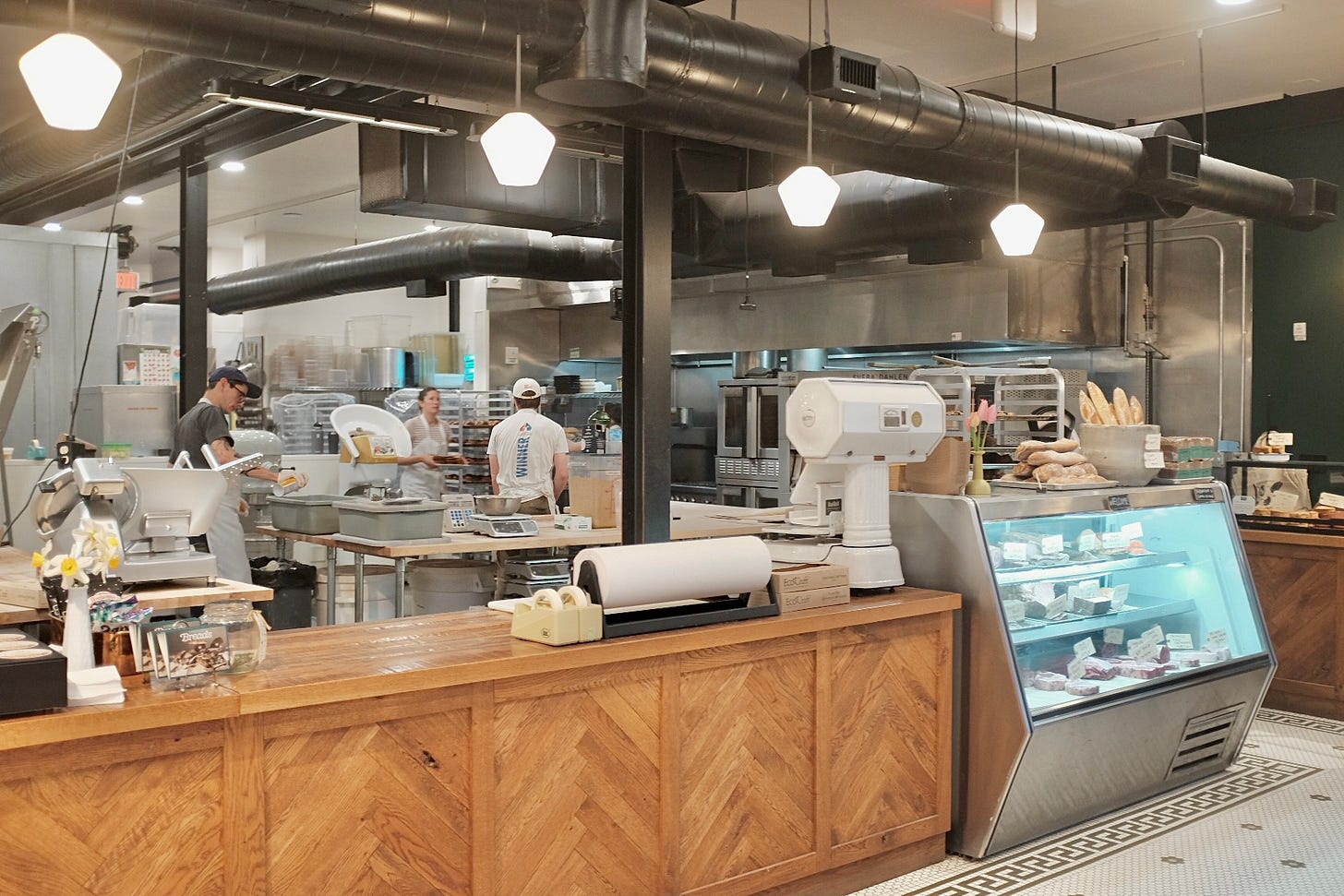
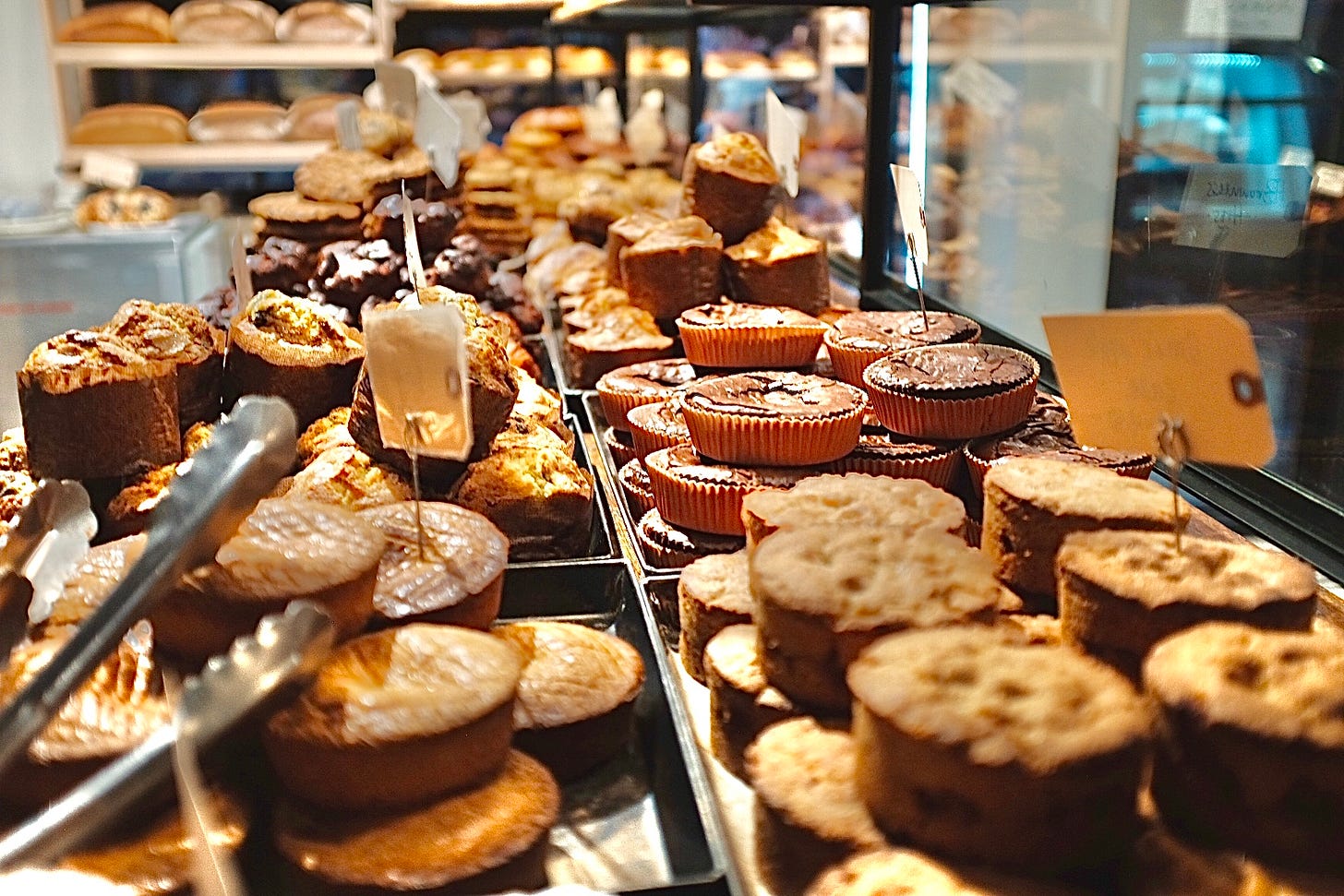

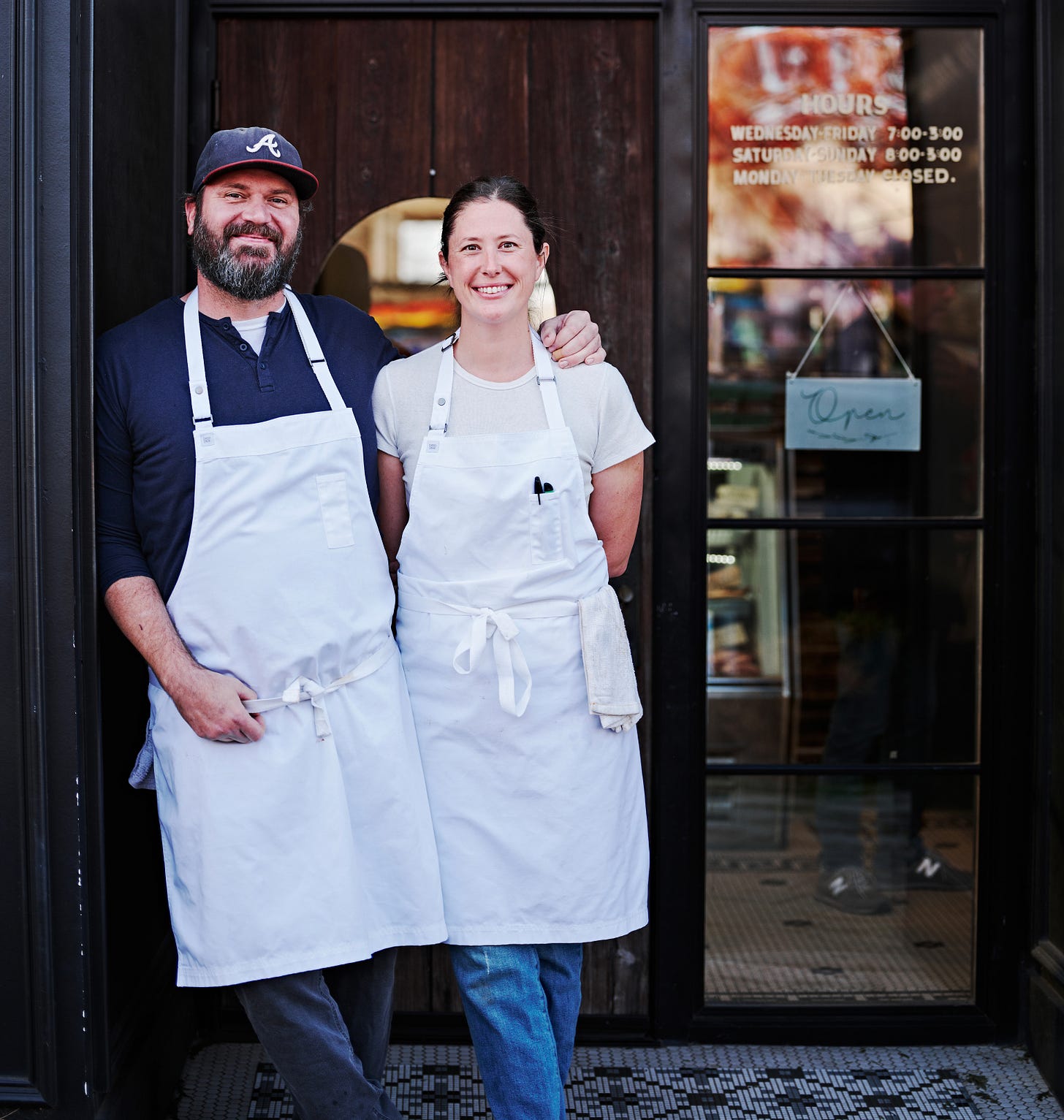
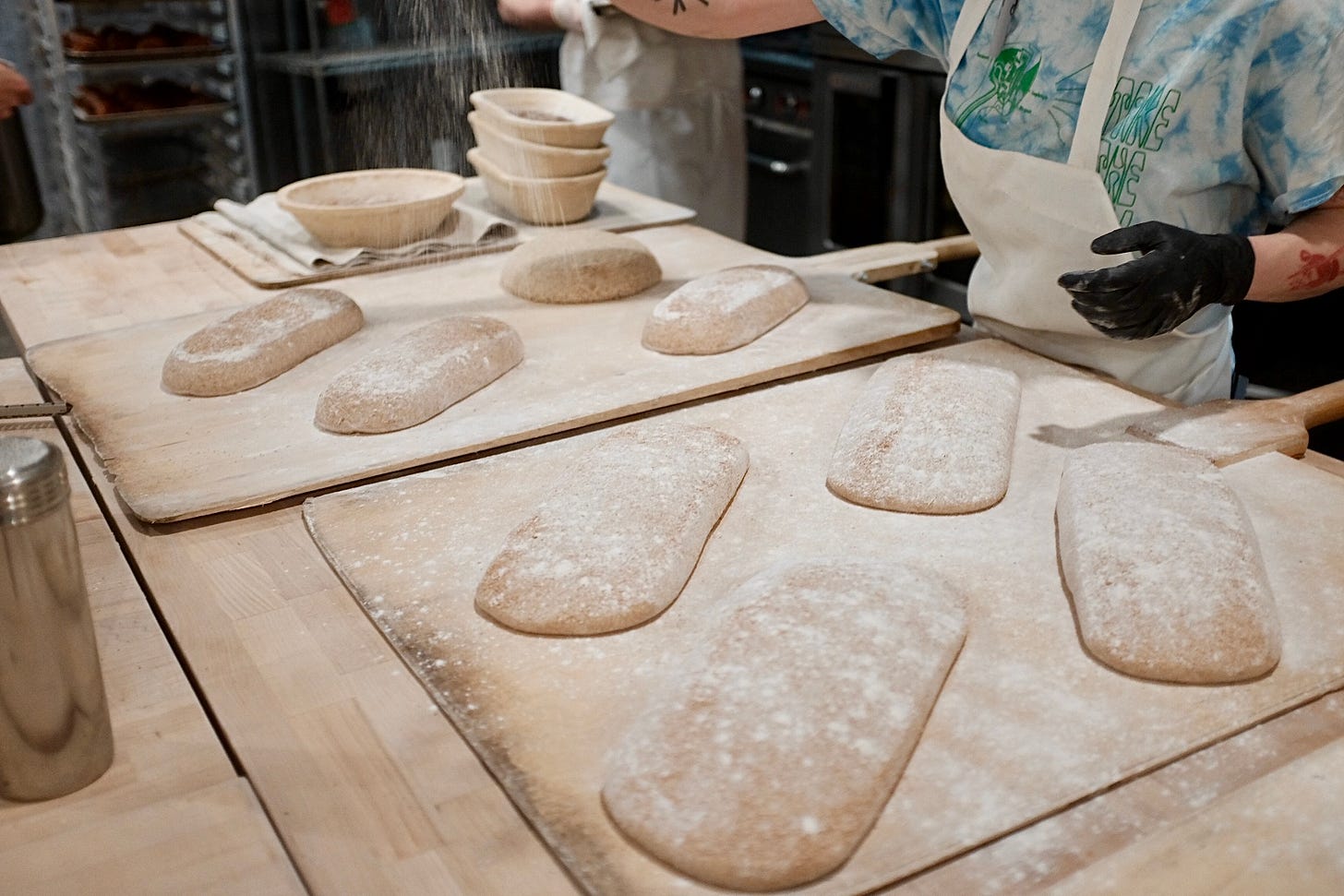
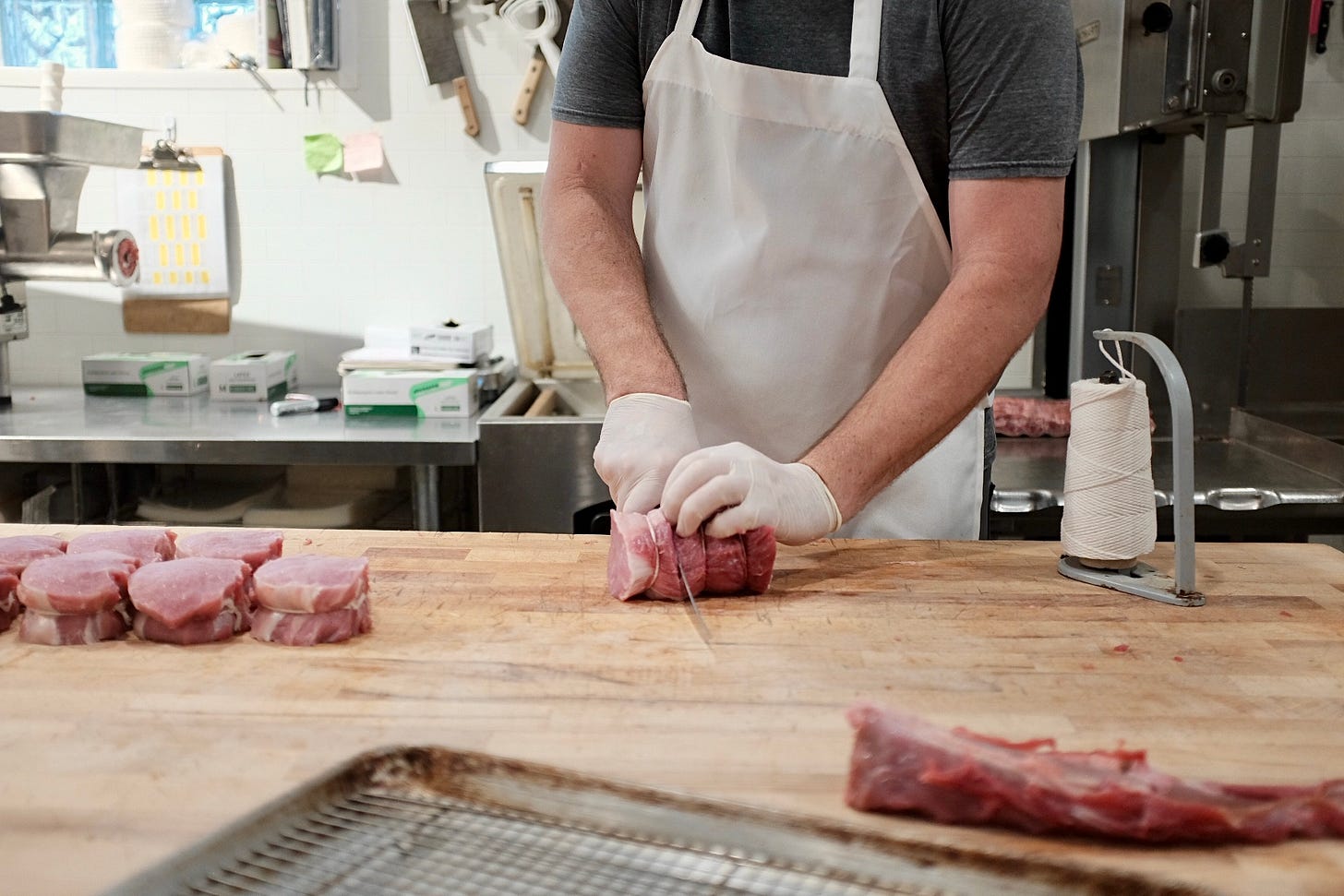
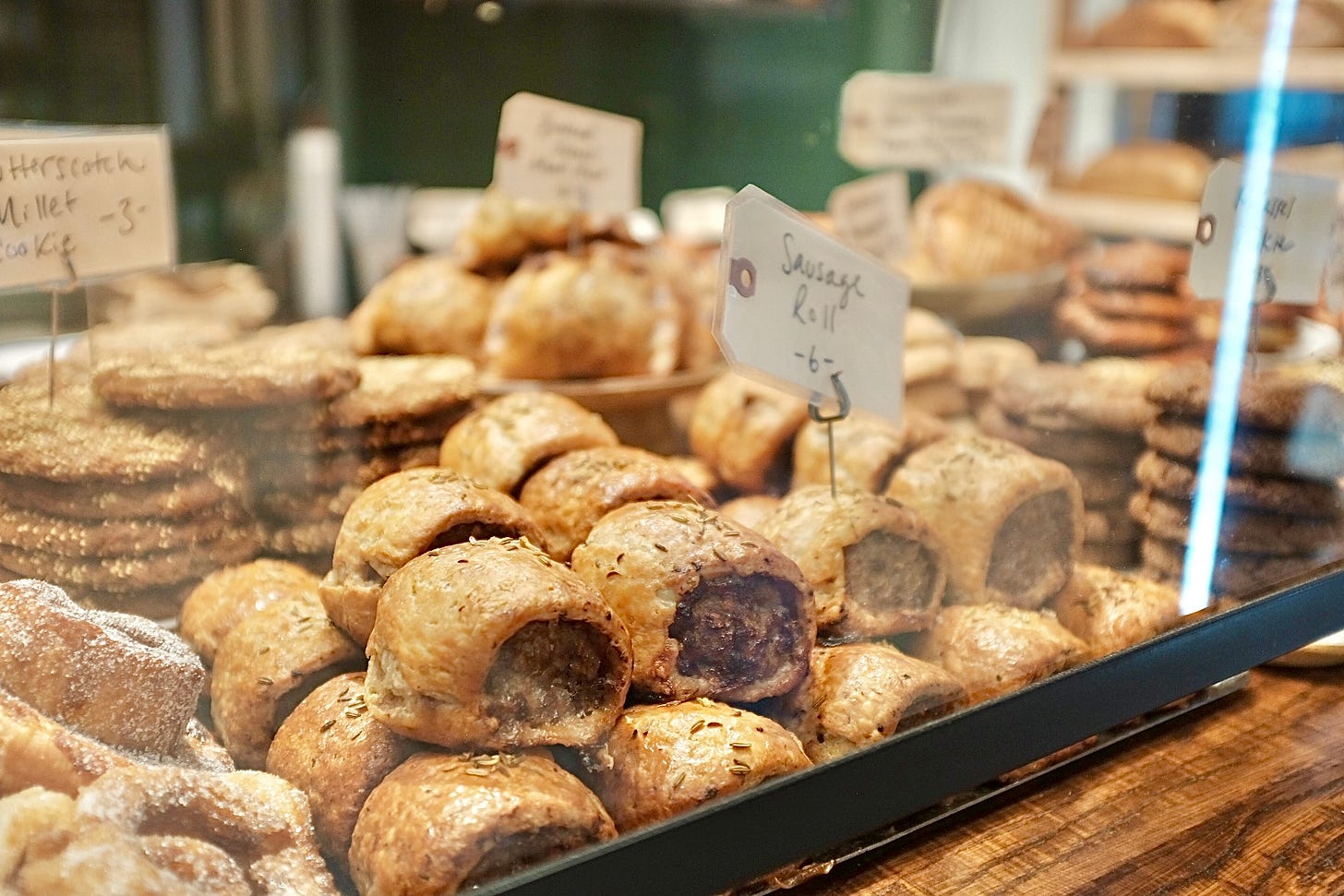
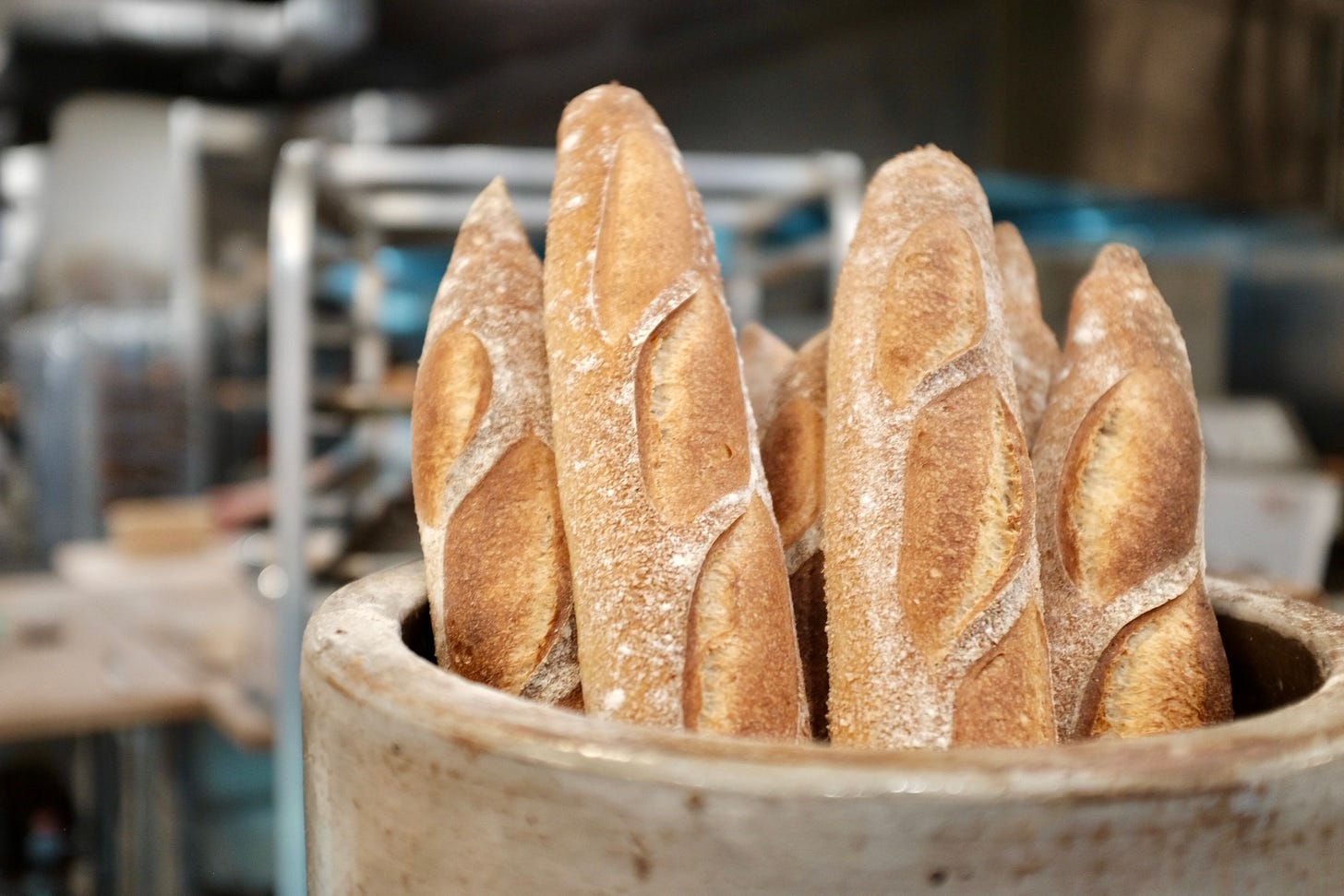
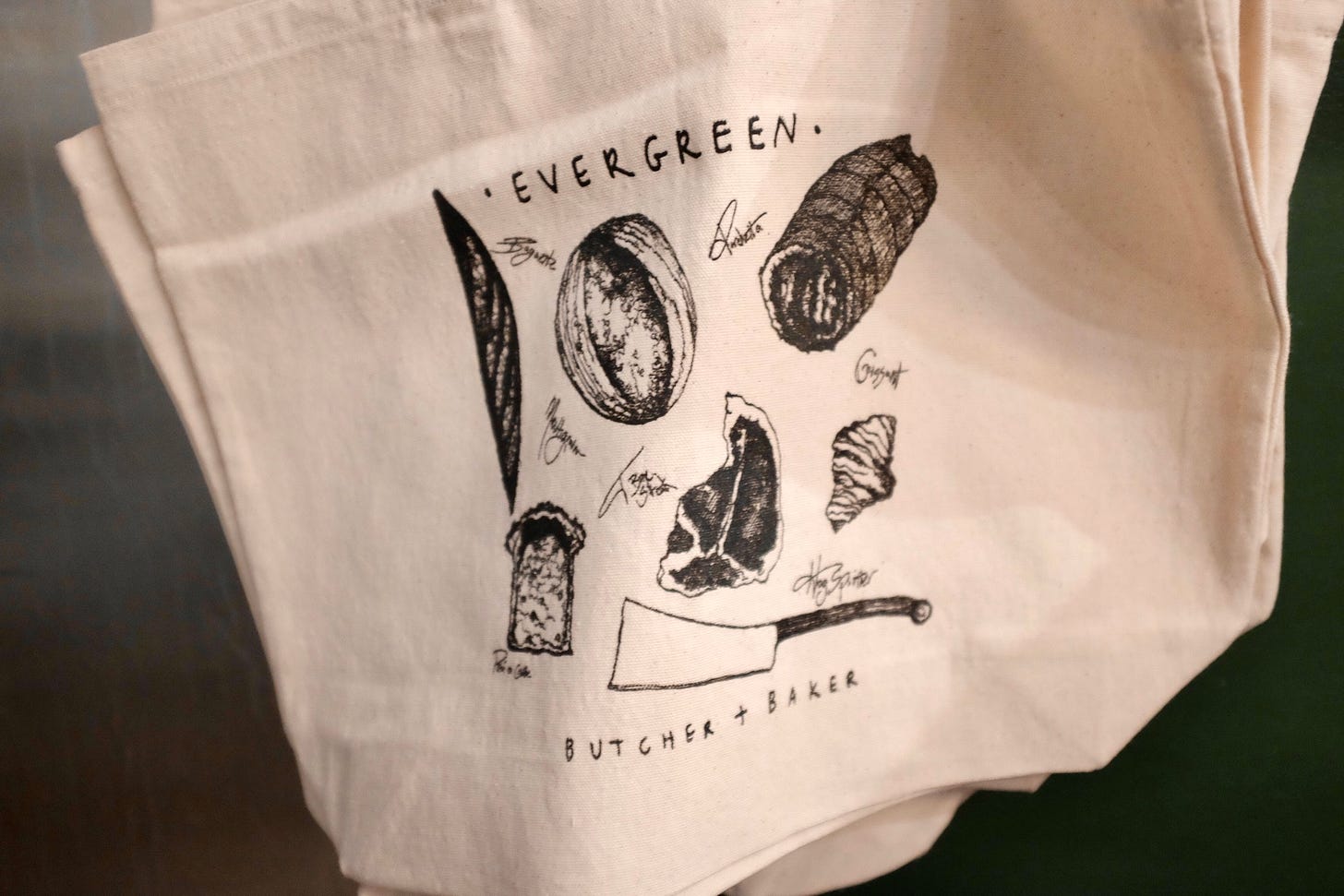
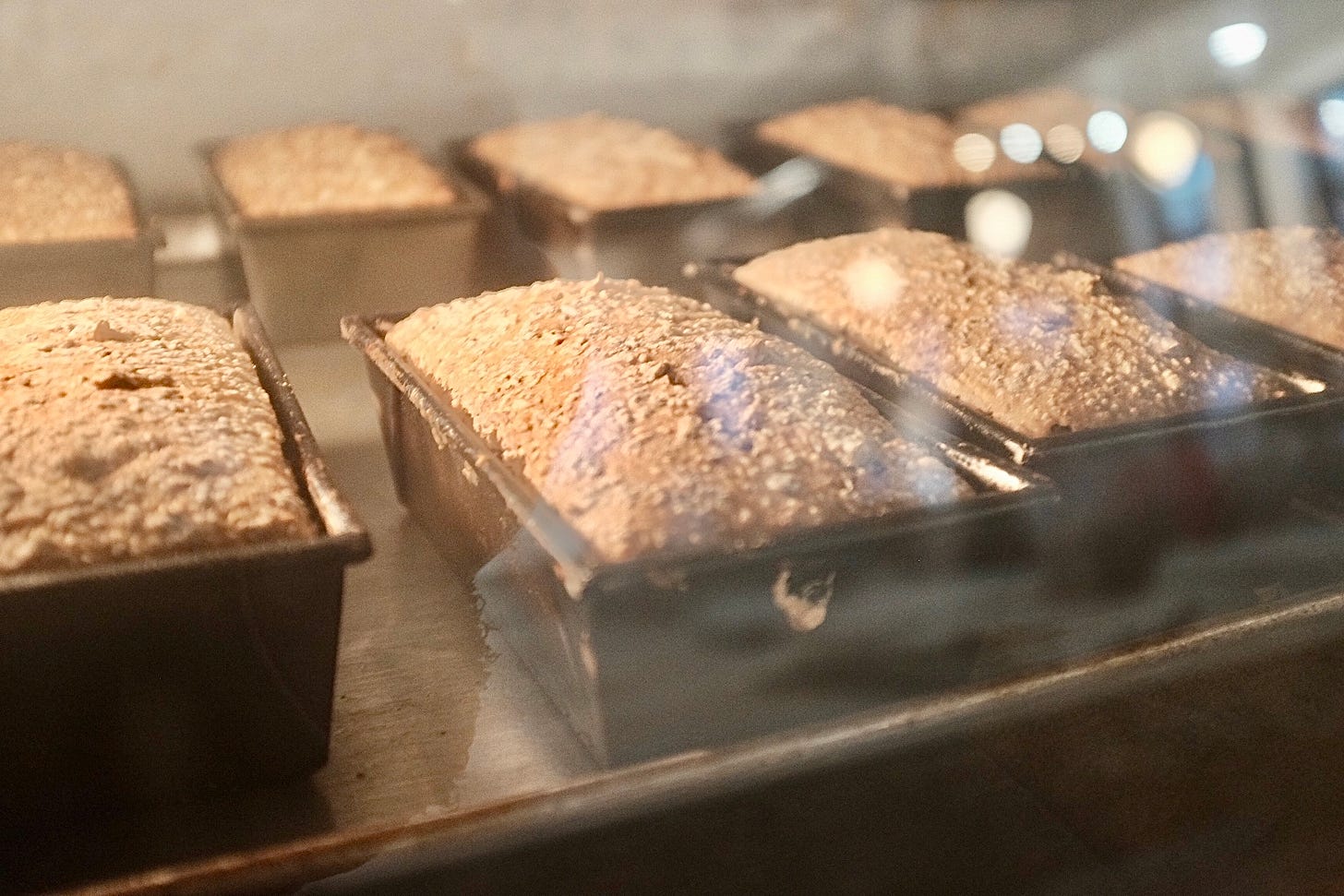
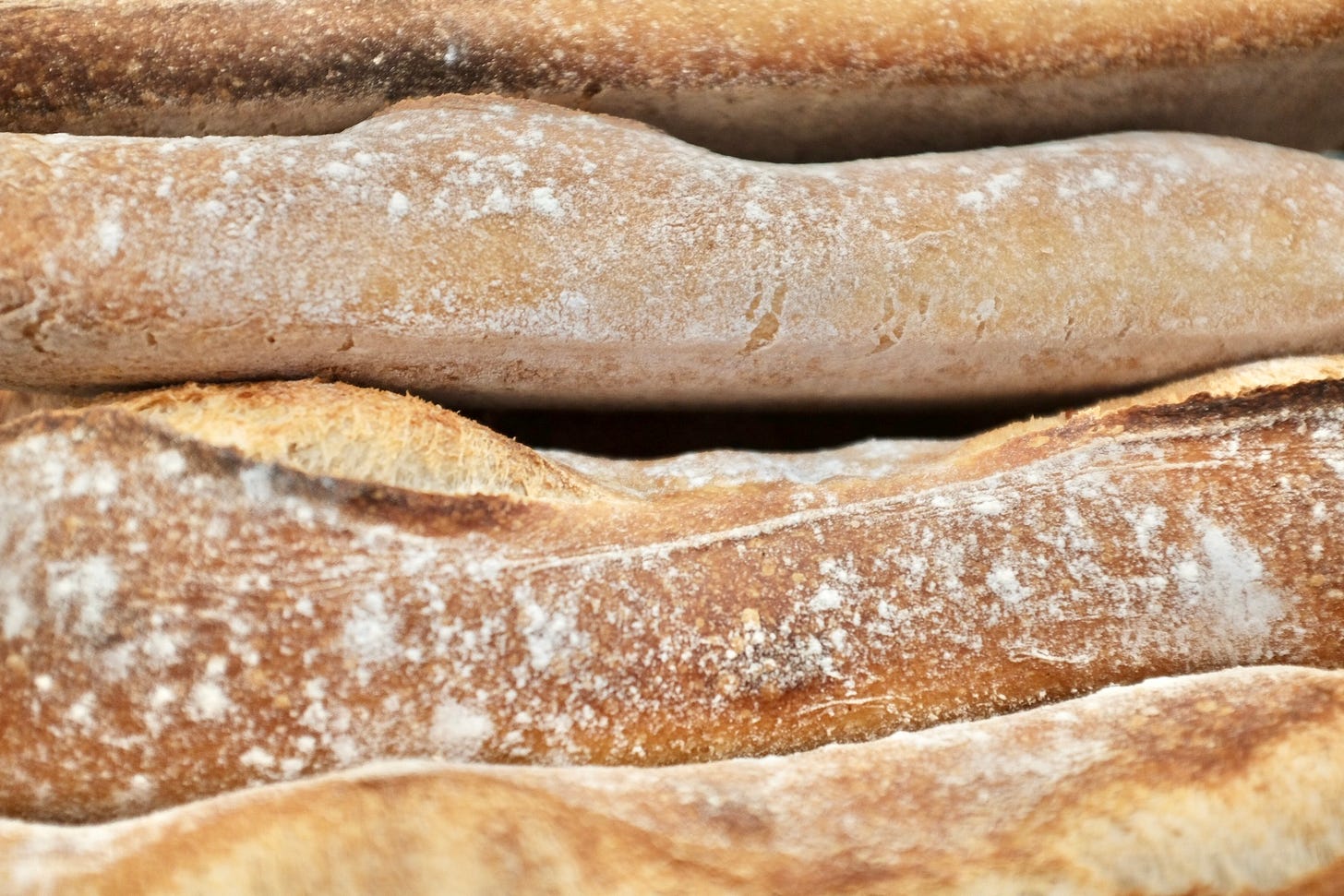

We’re all lucky to have Evergreen in our ATL community!
They’re a fantastic couple and wonderful hosts!